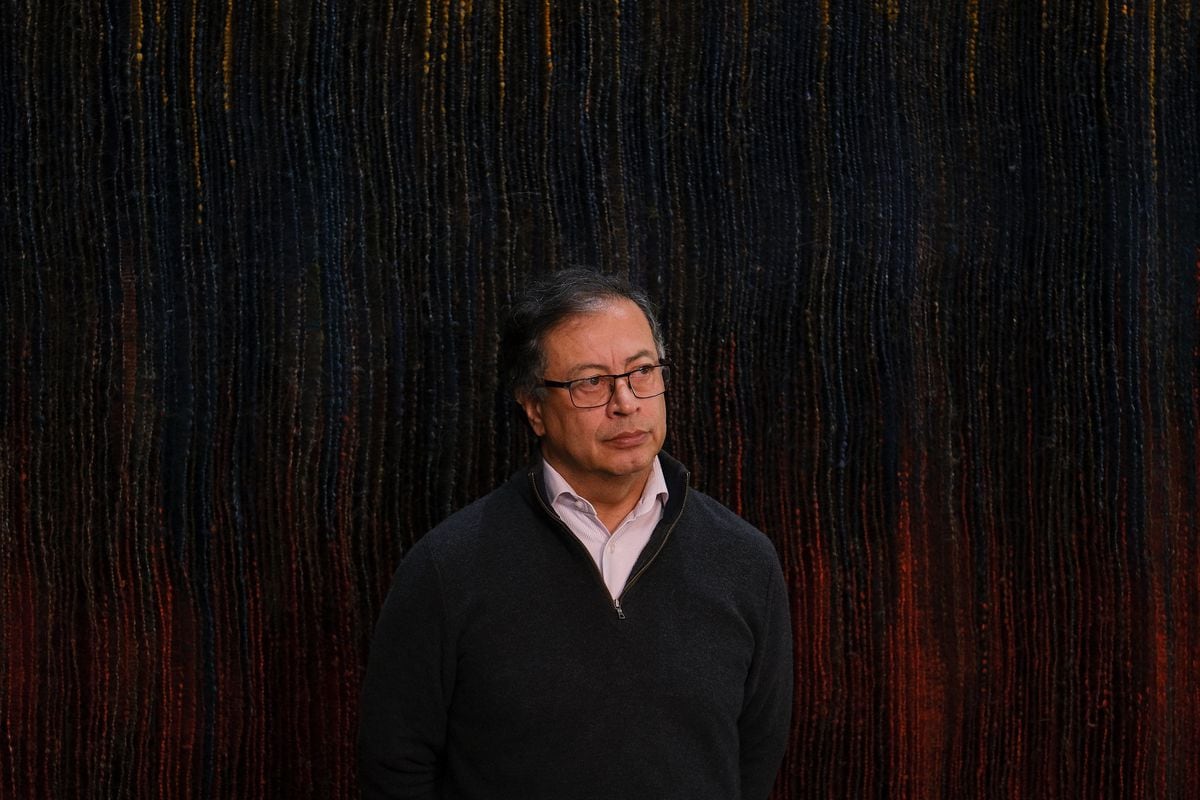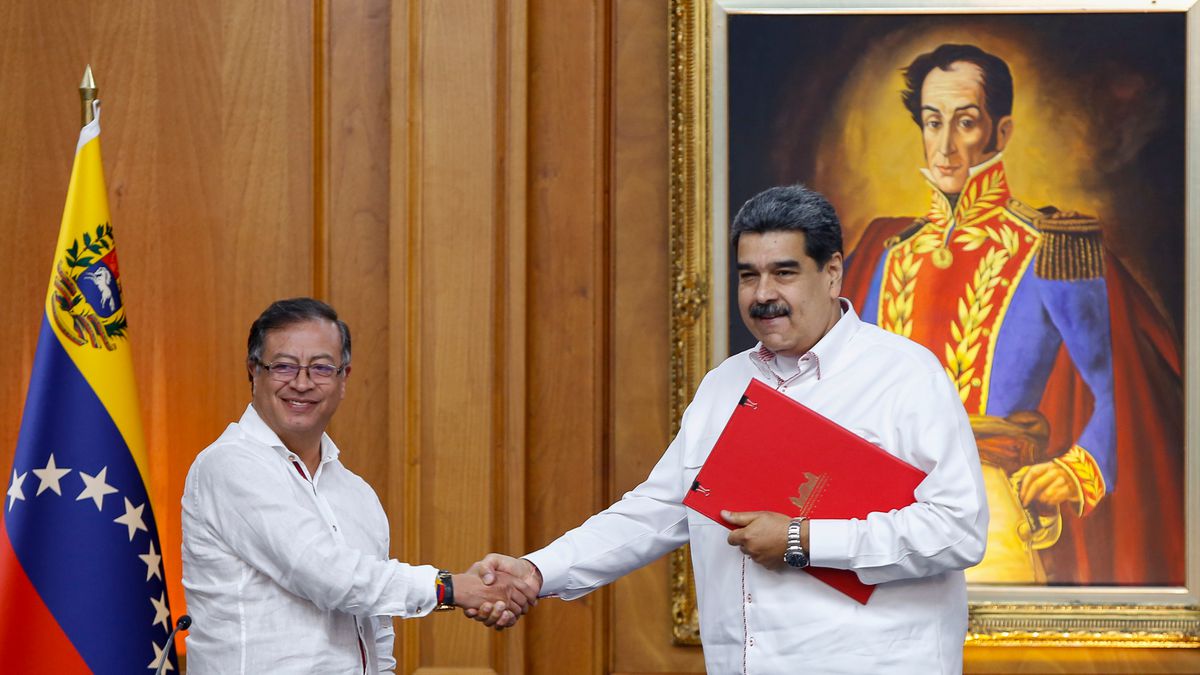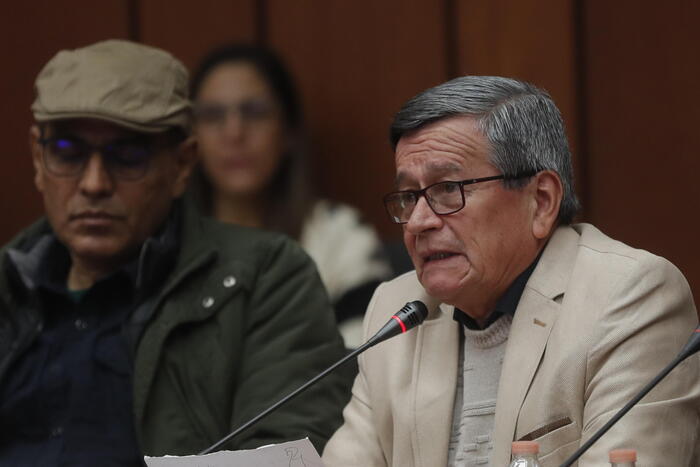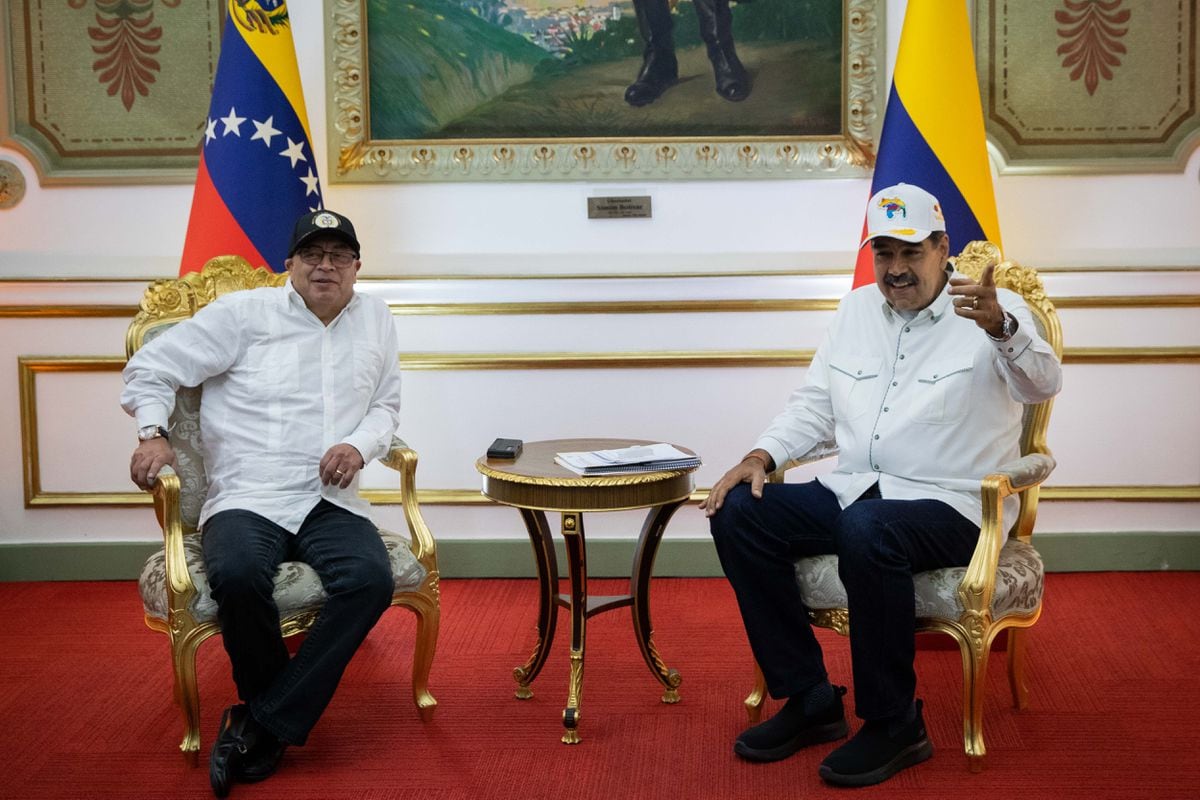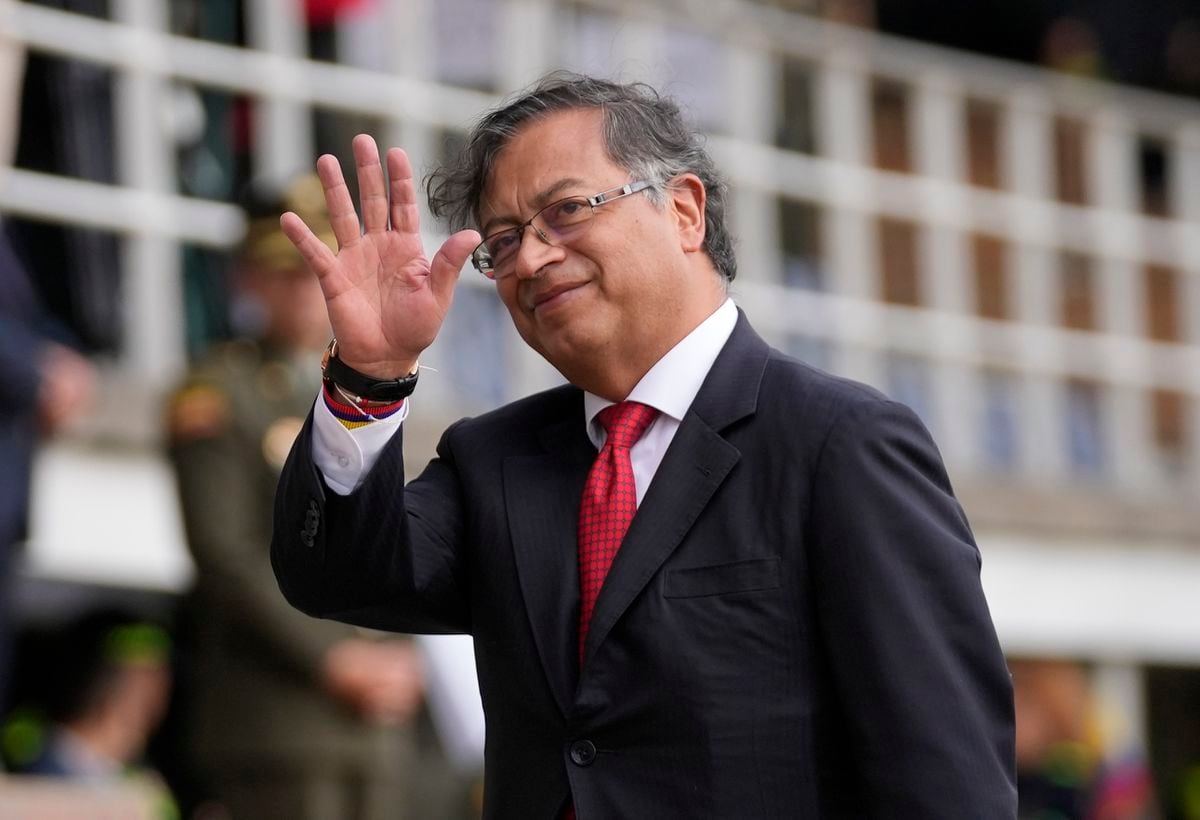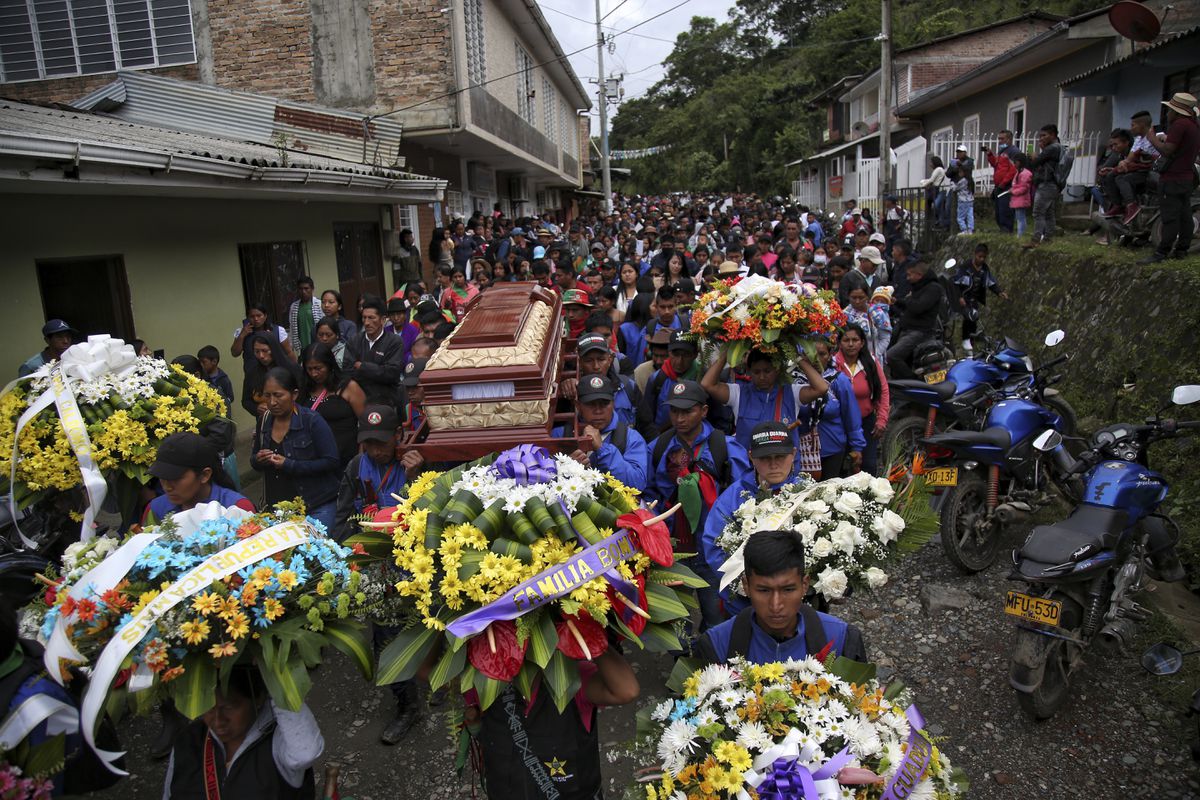ELN guerrillas in the department of Chocó, in an image from May 23, 2019.RAUL ARBOLEDA (AFP)
The National Liberation Army (ELN), the last active guerrilla in Colombia, has decreed a unilateral ceasefire from May 25 to June 3 throughout the country, “so that those who wish to vote do so in tranquility”, according to the rebels.
That truce covers the first round of the presidential elections on May 29, but for now not the eventual second round to choose the successor to President Iván Duque.
"Before knowing who the winning candidate may be, we dare to create a new political moment by generating a better environment for the next election day," says the statement that the armed group released on its website, which appears signed by the national leadership.
The guerrillas are willing to "resume talks with the government of the president who is elected", and assure that "a peace process with the ELN is the best opportunity to address priority issues", such as the murder of social leaders, corruption or drug trafficking.
This is the second time that the ELN has decreed a unilateral ceasefire this year that coincides with an electoral date, as it had done on March 13 for the legislative elections.
The guerrilla warns, however, that it reserves "the right" to defend itself in case of being attacked.
Four years ago, the ELN had also decreed unilateral truces ahead of the legislative elections and the two presidential rounds, but at that time a difficult dialogue was underway with the government of Juan Manuel Santos (2010-2018), which had just sealed the historic peace agreement that allowed the former Revolutionary Armed Forces of Colombia (FARC) to lay down their arms and become a political party with representation in Congress.
Since coming to power, President Duque, a critic of the agreements with the FARC, has conditioned the dialogues with the ELN on the guerrillas renouncing any criminal activity, and especially kidnapping, in addition to freeing all their captives.
From the outset, the dialogue with the government was then put on hold, and any prospect of rapprochement was blown up when, at the beginning of 2019, the ELN carried out a car bomb attack against a school for police cadets in Bogotá that left 22 dead.
Duque terminated the negotiation and asked Cuba, where the guerrilla's negotiating leadership was located, to hand over the leaders.
Duque's term, which ends on August 7, has been consumed without progress in the face of an eventual negotiation, with frequent diplomatic friction with Cuba, which has refused to hand over to the ELN leadership in compliance with the negotiation protocols .
In the meantime, the guerrilla that was born more than half a century ago, inspired by the Cuban revolution and liberation theology, has grown stronger, has carried out attacks and decreed on more than one occasion what it calls an "armed strike" in the territories where it is present, which include both the border with Venezuela and the Pacific Rim.
Considered by various observers to be the last armed guerrilla in Latin America, the ELN has a federated structure that makes any negotiation process difficult.
On Sunday, May 29, the first round of the presidential elections is held, in which the leftist Gustavo Petro starts as the favorite, at the head of all the polls, although for the moment without enough support to prevail without the need for a second round, scheduled for June 19.
The most immediate persecutor of him is Federico
Fico
Gutiérrez, the right-wing coalition candidate.
Further back appear the independent Rodolfo Hernández and the center candidate Sergio Fajardo.
The possible negotiations with the ELN have been a recurrent point of debate throughout the campaign, and most of the candidates have shown themselves willing to try to start a process.
Not even Gutiérrez, the least critical of the unpopular government of Duque and of a more continuist line, has not completely closed the door to exploring a dialogue, although he has conditioned it on the guerrillas stopping committing crimes.
subscribe here
to the
newsletter
of EL PAÍS América and receive all the key information on current affairs in the region.

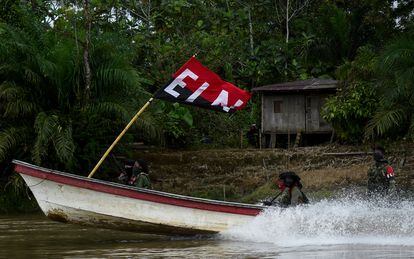
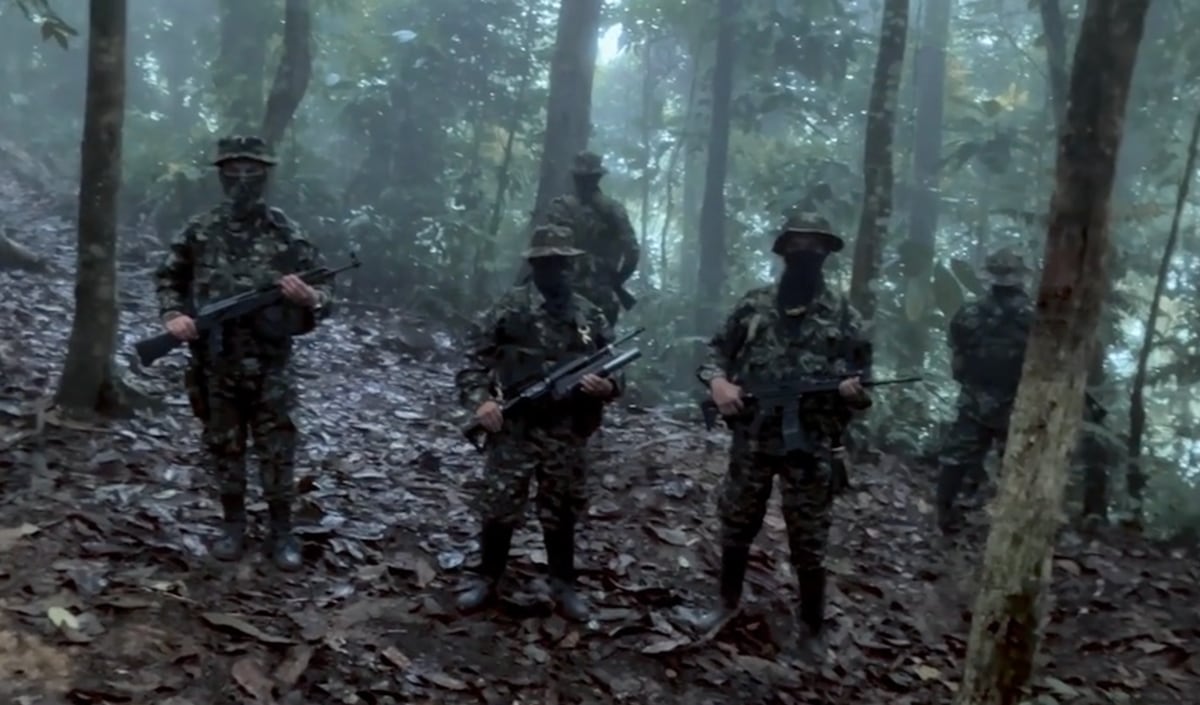
/cloudfront-eu-central-1.images.arcpublishing.com/prisa/NCQFUQJJ4ZHRJLKNWPLQ2MFQR4.jpeg)
